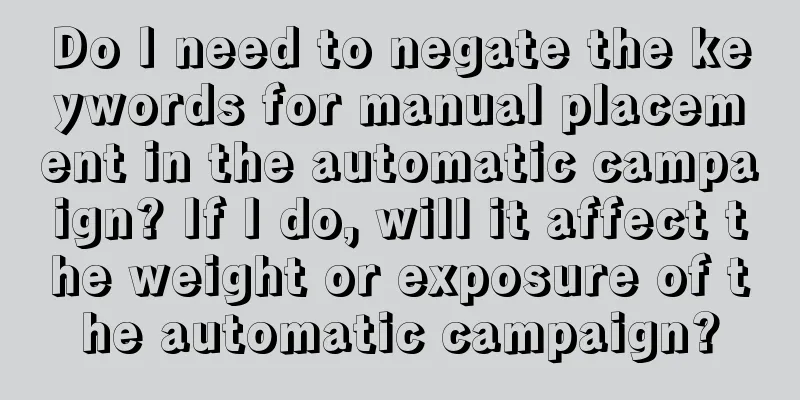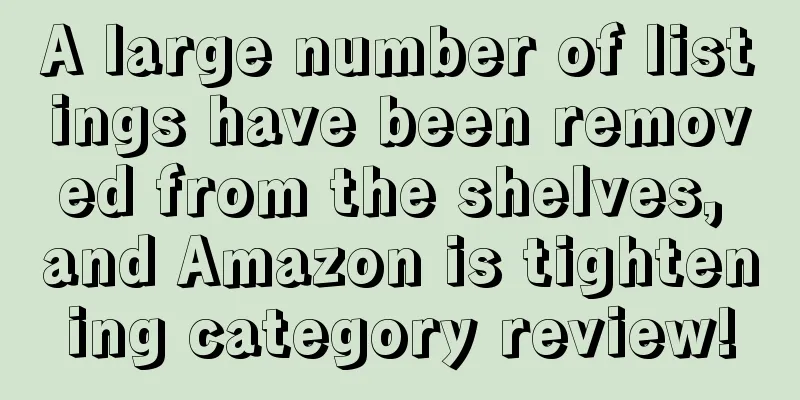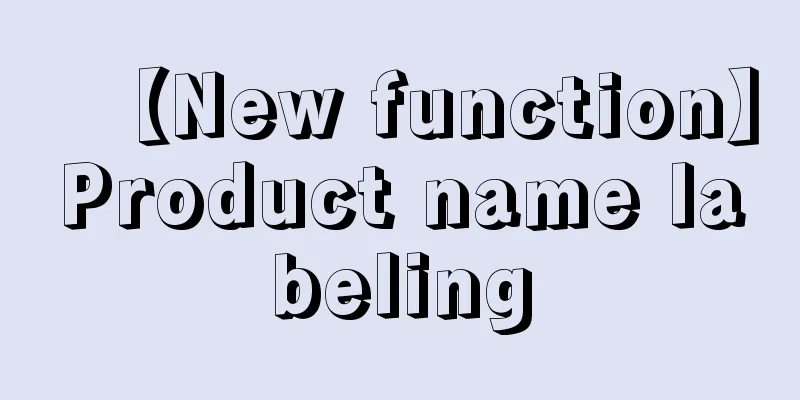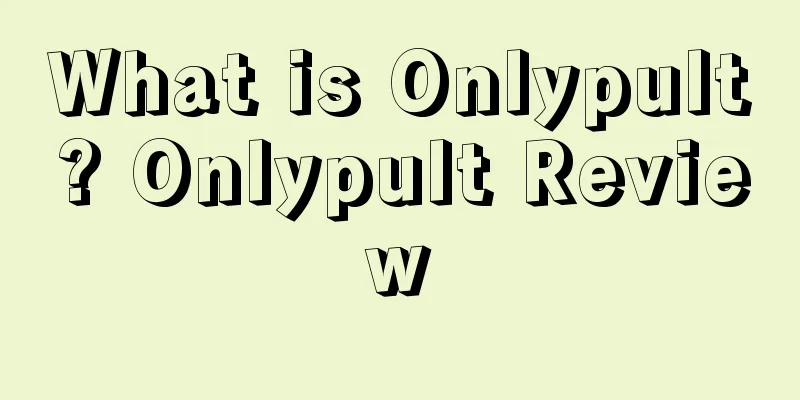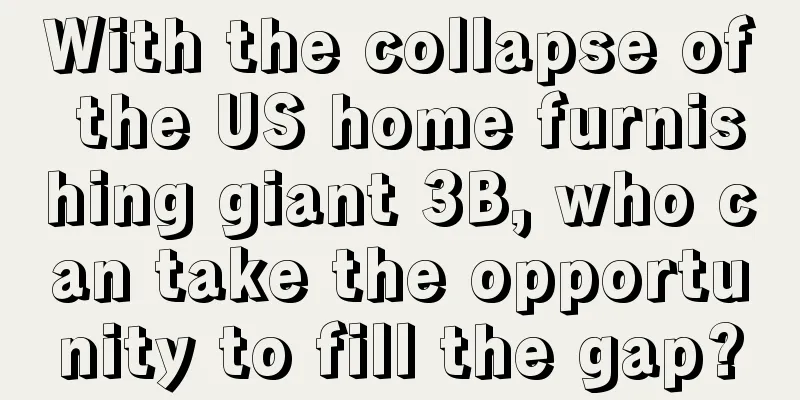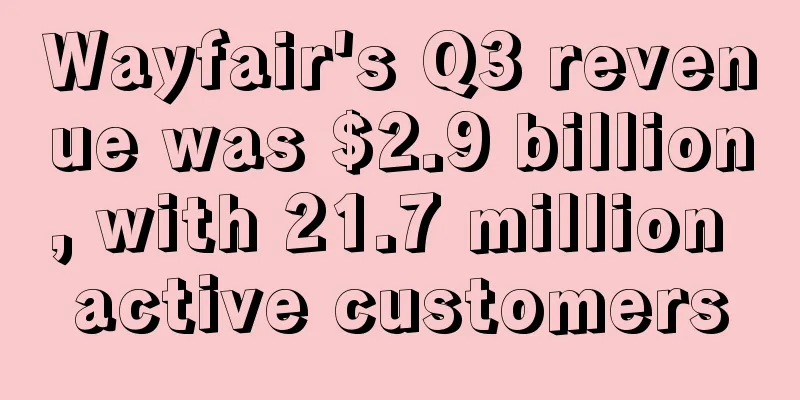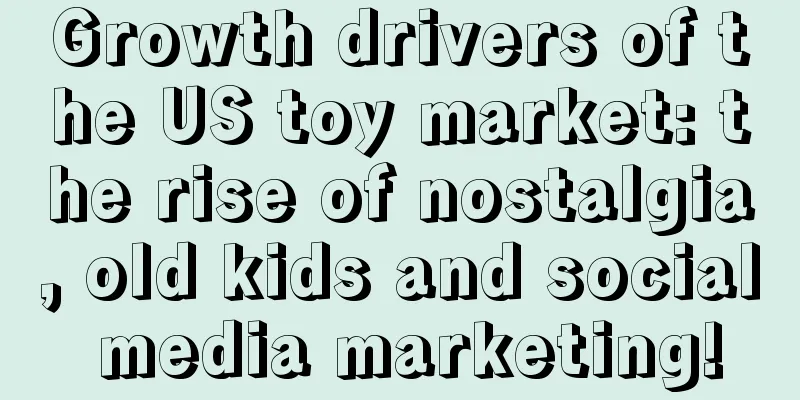|
Do manually placed keywords need to be negated in the automatic mode?
I don't do negation in automatic, because it is said that the placement of automatic and manual is slightly different. But recently I saw such a view in a book, saying that you can take the words from automatic and do manual broad or manual precise, and then use this word in automatic advertising to do precise or phrase negation.
Wouldn’t this affect the weight or exposure of automatic ads? I think it will gradually “kill” automatic ads.
How do you guys do it?
"Wonderful Reply"
Lawrence Yangyang - Amazon Advertising Specialist Agree with: Stevia Soda, Sugar Cube ing, Moon Viewing, Elva23333, I Love Sweet and Sour Spare Ribs More » In theory it has an impact but in practice it has no impact.
There is no impact because this is equivalent to a sieve, filtering out irrelevant or unwanted traffic. Advertising traffic is more accurate, performs better, and the weight can only be higher.
The reason for the impact is that it involves Amazon's underlying logic, the relevance between keywords and products. The greater the relevance, the higher the ranking of our keyword will be . The relevance is determined by a large number of customer searches, browsing, comparisons, add-to-cart, ordering and other shopping behaviors . Why does advertising promote product inclusion? It is because it can influence customers' shopping behavior. If you deny product-related words in the advertisement, customers who search for these words may not see your product, and it is even more impossible for them to add to cart and place an order, and there is no way to establish relevance.
But there are a few points to consider;
1. If I only deny individual words, there are many other words that help me establish relevance;
2. If I only have one group, such as the automatic group, I have done the negation, but I don’t have only this one ad. There are many manual keyword groups and ASIN ads that can also help establish relevance;
3. Negate irrelevant words. If they are irrelevant, what is the point of having relevance?
4. Negate related words. If a word has been verified by a large amount of data, it is low conversion and high ACoS (which may be related to its own competitiveness and the intensity of market competition), which means that this word is not suitable for you. If it is not suitable, why should you care about the so-called relevance? It is not the only word that can be used.
To sum up, even if there is an impact, it can be ignored and it can be considered that there is no impact. Jaso nby • Guangzhou • 2024-05-28 14:27 This statement immediately made me realize that it is difficult to be perfect, and I can only make choices that are beneficial to myself.
Eat and drink • Qingdao • 2024-05-28 14:48 The boss seems to be talking about negating the impact of keywords in a certain ad group.
Lawrence Yang Yang • Shenzhen • 2024-05-29 03:53 @该吃吃该喝喝: Haha, thanks for the reminder. Let's get back to the question. Here I mainly want to explain what the essence of advertising weight is. After understanding the essence, you will find that regarding the precise group of words and whether to negate them in the automatic group, there is no need to consider the influence of the so-called "weight":
If the selected word accounts for too high a proportion of the original group's spending, hindering the exposure of other words, you need to deny it; or if this word has a lot of orders, but the ACoS is high and needs to be selected and controlled separately, you need to deny it; if it is just because of good performance that you need to expand the word/accurately supplement the order, you don't need to deny it in this case. After all, it performs well in the original automatic group, so it is better to keep quiet than to move. Try to reduce human intervention as much as possible when it is not necessary;
Therefore, optimization of ads mainly depends on the performance of the words and your purpose. If you are always worried about whether it will affect the so-called "ad weight", you will be restricted in optimization. If the data is really worse after adjustment, continue to analyze the reasons and make adjustments. Don't worry too much.
Eat and drink • Qingdao • 2024-05-29 09:29 @Lawrence Yang Yang : What you said is very comprehensive. I have learned a lot. Thank you!!
Xiaoman Life • Shijiazhuang • 2024-05-29 14:57 This answer is indeed quite true. When processing an order for a certain word in automatic advertising, if I take it out separately and do manual processing, I will usually reject it if the acos of the original automatic word is not ideal. If the acos of the original automatic word is also good, I will not reject it. It is just an additional source of advertising, and it will not generate a large internal bidding.
Quantum Society • Shenzhen • 2024-05-30 14:59 @小满人生: If both automatic and manual advertising perform well, does it mean that there are two good ad positions for this word and both of them have good conversions? So, as you said, adding one more ad source will not generate internal bidding (no internal consumption)?
Ge zelligheid • Shenzhen • 2024-05-30 16:04 The answer is quite pertinent, but the truth is the same. It still needs to be combined with the performance data. There is not much impact between them. The display positions are different. We can only say that in this case the budget is limited, so the consumption of the same words should be reduced.
Anonymous user
Agree with: Eat and drink, Doris0312, edjdjjs, lalalal123, JosephGan More » My opinion: Negation is necessary, but not immediately
There are indeed differences in the positions of automatic and manual exposure, so many times after pulling out a keyword and running it manually, directly negating it in automatic will find that the conversion rate is not as good as before. I think there are several main reasons:
1. When switching to manual mode, the exposure position is not the same as before in automatic mode. The exposure is not accurate enough, so the conversion is naturally poor.
2. The bid is not high enough, the cpc will be much lower in automatic mode. If you pull it out and run it manually, you need to increase the bid a little bit based on the previous one.
3. Automatic advertising does not significantly improve rankings. If competitors start targeting your popular keywords, it is normal for automatic advertising to perform worse and worse.
My approach:
Take out the keywords that are performing well and turn on manual mode, while increasing the bid. Keep the automatic mode as it is and do not make any changes. Observe the performance of the two ads:
a. Automatic conversion is still very good, manual conversion is poor: exposure is not accurate, and it is necessary to find the exposure position with good conversion in automatic mode
b. Both automatic and manual ads perform well, with high conversion rates: Manual ads only cover a part of automatic ads, so find other locations with good exposure in automatic ads. Don’t deny it first, focus on acos in automatic ads and focus on conversion rates in manual ads.
c. The automatic conversion effect becomes worse, while the manual conversion rate is good (due to the increase in bidding, acos may increase): manual advertising covers the positions where automatic advertising performs well. At this time, it is necessary to adjust the bidding of manual advertising and lower acos. When it is reduced to an appropriate level, negate the words in the automatic advertising.
d. Both ads are worse: Roll up! Either fight with bayonets or raise your hands in surrender Happy Brainless Xiaoba • Xiamen • 2024-05-28 16:55 It is necessary to find the exposure position that actually converts well in automatic mode.
I don't understand what this sentence means. If manual is bad, why do we need to find a good exposure position in automatic mode? Is it a typo? How do I do this?
Just call me Qi • Changzhou• 2024-05-29 09:11 @快乐无脑小芭: It allows you to adjust the bid to encourage your manual ad position to find the automatic ad order position to increase conversion
Quantum Society • Shenzhen • 2024-05-29 10:46 @叫我姳戚就好: b. Both automatic and manual ads perform well, with high conversion rates: Manual ads only cover a part of automatic ads, and find other spots with good exposure in automatic ads. How to distinguish between automatic and manual ad spots in this part where both manual and automatic ads perform well, and also find other spots with good exposure in automatic ads?
HansHuang • Shenzhen • 2024-05-29 21:40 @Quantum Society : My understanding is to continue to find automatic words and add them to the manual. This is the simplest case. Just add automatic words to the manual without any thinking.
Quantum Society • Shenzhen • 2024-05-30 10:06 @HansHuang : Then look at the best positions for the same words in the manual order as those in the automatic order? I think I understand. Thank you~
The next pig on the vent - retire when you earn 5 million Agree with: Less troublesome Whether to deny or not is usually analyzed based on advertising data. If the conversion rate is not good despite high cost in automatic, then you can deny it, and then see if you are willing to deny this word. If you are reluctant to give up the traffic of this word, you need to pull it out and test the effect of this word in different manual bids and positions. Some words may not run well in automatic, and it may be better to pull it out and test it more in manual. If both automatic and manual are not good, it may be that this word is not closely related to the accuracy of your product, after all, it has low conversion rate. In this case, you can abandon this word. If the word relevance is relatively strong, it should be that the competitors under this word are too strong and you cannot compete with them. In this case, you can strategically put it down first, keep this word and wait for your link competitiveness to increase, and then release this word to try.
If it is better in automatic, then don't interfere with automatic for the time being, because it is very likely that your operation will not make it better, but worse. If you want to get more traffic for this word, to boost rankings or supplement orders, you can use manual + premium to control and test the acos and conversion effects under different bidding positions (distinguish from automatic bidding to ensure that the traffic does not overlap with automatic)
So whether or not to deny it depends on analyzing whether the word itself is relevant. The advertising data under this word reflects your goal for this word, or what the task of this word is. Some words have high accuracy and traffic and it is worth discarding. Some words may not be suitable for your links at this stage. You can choose to strategically shrink them for a short period of time or put them in a small black room, and then charge forward when you are stronger. Many good advertisements are tested through continuous changes, and it is not good to just open an advertisement without changing.
Anonymous user Agree from: sayule, 0000 painting, AML111 I feel that everyone's views are similar. It depends on the actual situation. Generally, there is no need to deny. I would also like to share my humble opinion. Welcome to exchange.
The so-called actual situation is to see whether the corresponding user search terms in automatic ads compete with keyword ads for the same budget. Because people generally tend to bid lower for keywords in automatic ads than in manual ads after stabilization, the budget for the same keyword in automatic ads is very small, and most of it can be ignored. What really needs to be considered is those clicks that are not accurate and have no conversions.
The performance of your ad copy has little to do with which ad group you put your keywords in. The real key is the listing itself, the ad position, and the strategy of your competitors. The main benefit of grouping is to make it easier for you to collect statistics, allocate budgets, and maintain strategies.
The habit of picking out core keywords for precision targeting and then eliminating them from other ad groups is mainly for targeted budget control, because this keyword has a relatively large amount of traffic and consumes too much budget, so it consumes as much as it is given, leaving other keywords in the same group with no budget available. Pick it out for separate statistical analysis. Autumn goes and spring comes • Guangzhou • 2024-05-28 17:42 Yes, yes. Ultimately, my budget is insufficient. I must try to reduce repeated keywords to lower the proportion of advertising expenses.
Station Manager • Shenzhen • 2024-05-30 19:01 @秋去春来: I think we still have to see how the conversion of this word in the automatic advertisement is. If the conversion is good, if you deny this word, the budget will be temporarily reduced, but the position of the precise keyword added later may not be as accurate and forward, then this action will affect the number of orders for the entire link. You still have to experiment to see the effect before deciding whether to deny it. If the manual conversion is very good and the cost is not very high, but the conversion of the word in the automatic group becomes very poor, and the bid price has risen very high, then deny it. If both words in the two groups have good conversions, and the combined order volume is better than before, the advertising cost conversion is good, so there is no need to deny it.
Xiaobai can't be a novice forever • Huizhou • 2024-05-30 19:22 @秋去春来: If the products I advertise are the same but with different ASINs, and both have clicks, if I want better delivery, should I keep the one with more clicks and stop delivering the others with fewer clicks?
Anonymous user
Agree with: Eat and Drink, Sugar Cubeing, Jeremyli, Slightly Spicy Dry Pot Bullfrog, Wuhuang Bazhahei More » No need to deny. Each has its own traffic. Can you determine where the words that appear automatically come from? Maybe they come from closely similar products, or from related and complementary products. And if you open the manual search, it may come from the homepage search.
In my humble opinion, the sources of traffic for automatic and manual positions may be different. As long as the conversion rate of this word is good, no matter where it comes from, keep it and let it continue to run. You can even add other forms of advertising to run this word.
On the other hand, there is another reason why it is recommended to keep the automatic one: the CPC of the word automatically generated may be lower than the CPC of the manual one. Since the conversion of this word can be obtained at a relatively low CPC, it must be retained.
One hundred thousand little stools - create one hundred thousand little stools The above experts have explained the theory thoroughly. Let me add some practical tips: As for whether you need to deny the search terms that have been manually entered in the automatic advertisement, you need to pay attention to
1. Are the CPCs of automatic and manual keywords close? If so, first raise the bid of manual ads to widen the gap with the CPC of automatic ads to avoid traffic overlap. Then observe the conversion of automatic ads. If the conversion is poor (ACOs is high), then directly deny it.
2. Although there are orders for the search terms in the automatic search, the ACOs are very high, that is, the output ratio is too low. In this case, you can deny it and then run exact ads with slightly lower prices for such search terms to maintain the relevance of the links;
3. If the budget is insufficient, the conversion rate of the words in the automatic search is better, then you should not enter these words manually, and look for other words to expand the traffic entrance;
Little White Cloud Camp It depends on the situation. If the ACOS is high for a long time or the revenue is poor, it means that the phrase may not be very relevant to the product. Put the word into manual mode and run it for a while to see the actual adjustment. It may be that the position problem leads to high ACOS. Similarly, if the revenue is poor, it will not reduce the weight of the advertisement. If the conversion rate of this word is not high, it will not have much impact on the advertisement group. The saved budget can also provide opportunities to obtain other relevant traffic. If the advertising fee is high, run and optimize slowly. If the advertising fee is low, there should be a threshold and it should be rejected even if it exceeds the threshold.
Anonymous user Agree with: amoreee The concept of negating a word does not mean to exclude it directly, but to reduce the weight of the word. The meaning of reducing the weight is to make the word appear later when it is triggered. The logic to reflect on is what activities will be triggered when searching for word A, and what will affect the triggering conditions, which is the meaning of playing advertising. I hope it helps you. Quantum Society • Shenzhen • 2024-05-30 15:03 Denying the concept of a word does not mean excluding it directly, but rather downgrading it. The meaning of downgrading is to make the word appear later when it is triggered again.
For example, when you precisely negate a keyword, will the word still appear, just at a later position?
A ML111 • Asia Pacific • 2024-05-30 16:23 @Quantum Society : It is highly likely that the advertising position will no longer appear. The natural position will continue to appear, but the negation of advertising will gradually reduce the weight of this word.
Anonymous user • Zhejiang • 2024-05-30 18:31 @Quantum Society : This is related to the triggering conditions. When searching for the word AB, if AB is rejected, then all kinds of A/B/AB patterns will appear. Precision only reduces the weight of AB, not A/B. And now the reverse order of the broad definition is also included. In short, precision cannot completely reject to 0, but it will continue to reduce the weight.
|
